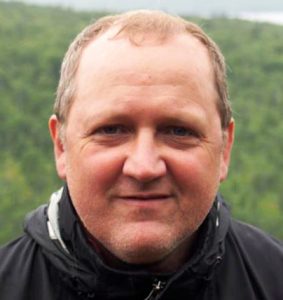
- This event has passed.
6/30/16: Bradley Cardinale

Please join us for a Great Lakes Seminar Series presentation:
Time10:30 – 11:30 am EDT
Location: NOAA Great Lakes Environmental Research Laboratory, Lake Superior Hall
Presenter: Bradley Cardinale, Director, Cooperative Institute for Limnology and Ecosystems Research (CILER)
Title: CILER and GLERL’s alliance studying the Great Lakes: Where have we been, and where to from here?
Event flyer
Webinar recording: https://www.youtube.com/watch?v=owklKdxx1FQ&t=3s
Abstract: This seminar will be part introduction, part reflection, and part anticipation. As the new Director of the Cooperative Institute for Limnology and Ecosystem Research (CILER), I will take this opportunity to first introduce myself and tell you a bit about my background, interests, and why I am excited to lead CILER in its partnership with GLERL. I will then spend time reflecting on some of the successes we’ve had meeting sustainability challenges in the Great Lakes, focusing on the role that interactions between academia and government have played in success. I will then turn attention towards the future, and discuss some of the contemporary challenges we face on Great Lakes sustainability, as well as how a new era of collaboration between CILER and GLERL can meet these challenges more holistically that any group of researchers could do alone.
Bio: Dr. Brad Cardinale is an ecologist who uses mathematical models, novel experiments, observational studies and meta-analyses of existing data to examine how human activities impact biological diversity, and to predict how changes in biodiversity affect the goods and services ecosystems provide to humanity. His research, teaching, and professional service are all tied together by a common thread, which is to produce and distribute the knowledge needed to conserve and restore the variety of life on Earth. He works mostly in freshwater ecosystems, but frequently extends into marine and terrestrial habitats to gain new insight and find generalities. His research program features two primary branches. The first seeks to identify how changes in biodiversity impact ecological processes that are essential to the functioning of ecosystems, and the goods and services ecosystems provide to society. A second branch of his research focuses on restoration of species and the processes they perform to ecosystems that have been degraded.
Important Visitor Information
All in-person seminar attendees are required to receive a visitor badge from the front desk at the NOAA Great Lakes Environmental Research Laboratory facility. Seminar attendees need to present a valid U.S. photo ID or green card. If you are a Foreign National, advance notification of at least 48 hours is needed so that security guidelines are followed. You will need to present your passport (a copy will NOT work). For questions regarding building access, or assistance in obtaining Foreign National clearance, please call 734-741-2393. Email contact: [email protected]
____________________________________________________________________________________
Questions? Contact Mary Ogdahl: [email protected]

